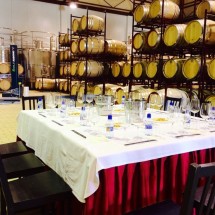Law Offices of John P. Connell, P.C.: In Massachusetts, a brewer producing beer for mere personal or family use, and not for sale, does not need any license to do so. Should the brewer intend to brew and sell its beer commercially however, licenses are needed at both the national level, through the Alcoholic and Tobacco Tax and Trade Bureau (TTB), and at the state level, through the Massachusetts Alcoholic Beverages Control Commission (ABCC), and potentially at the local city or town level where the product is made and sold.
The question arises, however, what if the brewer intends to offer his premises as a place where consumers can pay to brew their own beer themselves? What are the guidelines to operating and obtaining a license for such brew-on-premises establishments?
The TTB recognizes there exists businesses where customers can brew and take home beer that they, themselves, made. The TTB defines such businesses as “BOPs.” According to TTB “BOP” guidelines, no federal or state license is required to allow customers to brew their own beer on the business’s premises, so long as certain conditions are met.
A TTB permit or state license is unnecessary when the owners and employees operating the BOP merely provide brewing space, equipment and unfermented ingredients to customers, as well as provide limited assistance to the customers. Customers can be helped only with respect to moving containers, disposing of wasted ingredients, cleaning, maintaining and repairing used equipment, and other similar administrative tasks not involved in the process of creating the beer. It is the customers’ obligation alone to brew, store and package the beer.
If a BOP operates in violation of these conditions, both federal and state approval will be necessary for the business to legally continue. This means that any owner or employee of a BOP who wishes to aid with the activities of brewing, storing or packaging the beer, such as fermenting ingredients, adding ingredients, filtering the beer, or bottling or kegging the beer, will need to acquire a TTB permit and state license. Once this need for a license is determined, the BOP may be considered a “brewery” and will be subject to all laws relating to brewery operation. For example, the beer produced by customers will need to be taxed, labeled with the brewer’s name and place of production, and will need to bear the Government Warning Statement regarding consumption of alcohol. However, licensing the business as a brewery and complying with all regulations related to brewery operation will enable the business to enjoy the potential benefits of operating a brewery, such producing and selling its own beer commercially.
Under current regulations, a Massachusetts business would allow customers to come in and brew their own beer, or purchase ingredients and equipment to do so at home. At a Massachusetts business, the brewing process would involve two sessions: the first used to brew the beer and the second to bottle and create a label two weeks later when the beer is complete. At a Massachusetts business and all BOPs alike, customers who are of legal age would be allowed to remove the beer they brewed from the premises for personal or family use. This includes use of the beer in contests, tastings, and exhibits, but excludes any sale of the beer. They would be limited to producing no more 100 gallons per customer per year at the BOP.
Massachusetts statutes do not expressly recognize or permit BOP establishments, so one should be careful in proceeding in such a venture and be sure to have proper legal advice. However, some states are considering adopting a license specific to BOP operations. On January 7, 2013, for example, legislature in Montana contemplated a bill providing for a new license exclusively for BOPs. This license, if adopted in Massachusetts, would not change the current operations of BOPs, but would provide for more definite regulation. As BOPs are still a bit under the radar in many states, it is unclear whether a need for this will arise in the future.
CONTRIBUTED BY COURTNEY MCGEE
© Law Offices of John P. Connell, P.C., 2013.
The content in this article is a general summary of legal content; it does not constitute legal advice as to your particular situation.

